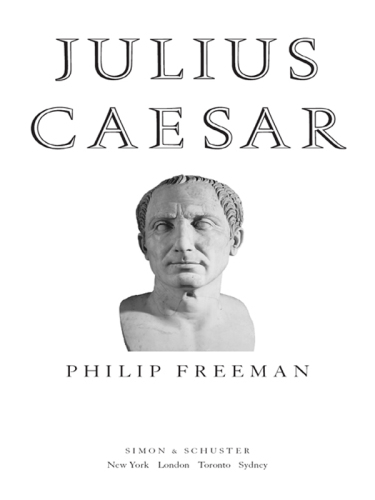
Julius Caesar
کتاب های مرتبط
- اطلاعات
- نقد و بررسی
- دیدگاه کاربران
نقد و بررسی

March 17, 2008
Historian Freeman (The Philosopher and the Druids: A Journey Among the Ancient Celts
) paints a flattering portrait of Caesar in this admirable biography, exalting his cunning, military skill, political insights and allegiance to the plebeian class. In fast-paced prose and detailed historical sketches, Freeman traces Caesar’s life from early youth onward, covering his marriage and service as a priest (or pontifex
); his election to pontifex maximus
in 63 B.C.; his command of Roman forces in the Gallic Wars; his ascension to leader of the republic; and his famous assassination. Drawing on Caesar’s own writings, Freeman portrays him as a brilliant military strategist whose defense of Roman land in the Gallic Wars extended the rule of Rome from Italy to the Atlantic. Caesar returned to Italy in 49 B.C. and became dictator three years later, seeking to improve the republic through civic reforms, including the taking of a proper census, the building of a library, the codification of Roman law and the conversion of Rome to a solar calendar. Although Freeman’s biography reveals little new information about Caesar, his cultural and historical knowledge bring the emperor to life and humanize him in a way no writer before him has succeeded in doing.

April 1, 2008
Classics professor Freeman (Luther Coll., Iowa; "The Philosopher and the Druids: A Journey Among the Ancient Celts") has written an admiring and fast-paced biography of the Roman general and dictator (c.100-44 B.C.E.) called by Alexander Hamilton "the greatest man who ever lived." No one reading this account of Caesar's marvelous adventures in Gaul, Egypt, and Britain would question Hamilton's judgment. The great Romans have been favored with some good recent biographies. Freeman's book lacks the literary quality of Anthony Everitt's "Cicero" or the erudition and moral complexity of Adrian Goldsworthy's "Caesar". Nor does Freeman trouble his reader by sharing the conjecture or feel for legend or nuance involved in narrating the life of a man who has been dead for 2000 years. Here, Caesar, descendant of military hero Marius and claiming the goddess Venus among his ancestors, is a product of the Roman slums made good. A serviceable and always accessible introduction for general readers to a man who truly did change history, this book belongs in popular collections.Stewart Desmond, New York
Copyright 2008 Library Journal, LLC Used with permission.

April 1, 2008
The character and exploits of Gaius Julius Caesar continue to fascinate both historians and laymen, with good reason. His military conquest of Gaul spread Roman civilization beyond the confines of the Mediterranean Basin. His political reforms laid the basis for the imperium established by Augustus. His personal story is loaded with drama and adventure. Freeman, a classics professor at Luther College, has written a compact but thorough account of the life and achievements of this historical giant. He traces Caesars family background, his patrician upbringing, and his early public career as he strove to survive in the tumult of the political chaos and civil wars that plagued the republic in the first century BCE. As Caesars political career advanced, he became, Freeman argues, a consummate manipulator who was prepared to take huge risks by reaching out to the plebeian class. This bold and sometimes reckless approach is even more evident in his military campaigns. Ultimately, as Freeman indicates, his willingness to challenge powerful vested interests led directly to his murder. This is a fine biography best suited for general readers.(Reprinted with permission of Booklist, copyright 2008, American Library Association.)

























دیدگاه کاربران